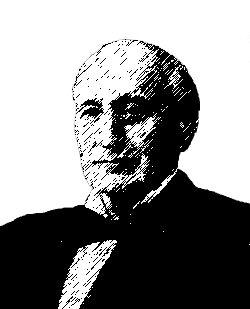
Phineas Bresee
Some months ago, among some of the colored people in this city, reinforced after a little with some whites, there began something which was called the “gift of tongues.” The meetings were held in a large rented building on Azusa Street. The professed gift of tongues was not the only peculiarity of the meetings, but much physical exercise of various kinds, with laying on of hands. The meetings attracted some attention, especially among that class of people who are always seeking for some new thing. We made no mention of the matter in the Messenger, not deeming it of sufficient importance to demand attention from outsiders. We felt that all men must know that as far as it was necessarily the same as is being carried on with so much success in this city of getting believers sanctified and sinners converted, and so far as it partook of fanaticism and was fostered by heretical teaching, we did not care to give it the prominence of public discussion.
But some parties who had the confidence of editors in the East sufficiently to secure the publication of what they have written, have given such marvelous statements of things as occurring in connection with this thing, that for the sake of those at a distance, and the many who are writing us about it, we deem it wise to say a simple word.
Locally it is of small account, being insignificant both in numbers and influence. Instead of being the greatest movement of the times, as represented—in Los Angeles, at least—it is of small moment. It has had, and has now, upon the religious life of the city, about as much influence as a pebble thrown into the sea; but what little influence it has had seems to have been mostly harmful, instead of beneficent. It seems not only to have had at least some of the elements of fanaticism, but to be trying to inculcate such erroneous or heretical doctrines as mark it as not of the Spirit of Truth. The two principal things which are emphasized, and wherein they claim to differ from others, is, that Christians are sanctified before they receive the baptism with the Holy Ghost, this baptism being a gift of power upon the sanctified life, and that the essential and necessary evidence of the baptism is the gift of speaking with new tongues.
As far as has come under our own observation, or that we have seen experted by competent examination, the speaking with tongues has been a “no-thing,” a jargon, a senseless mumble, without meaning to those who do the mumbling, or to those who hear. Where in a few instances the speaker or some other one has attempted to interpret, it has usually been a poor mess.
It would be doing the few poor people who have been deluded by this thing no wrong to say that among clearheaded, faithful, reliable Christian people of this city the thing has no standing.
We are surprised at reputable papers giving credence to the almost unthinkably extravagant utterances in reference to such a matter before attempting to know whether there was anything to it or not.
Anything that is out of the good old way of entire sanctification, by the truth, through the blood, by the baptism with the Holy Ghost and fire, which entirely separates and burns up the chaff of carnality, and then abides to teach, lead, and empower, may well be halted and carefully examined before being admitted to confidence, or given the semi-endorsement of publication.
These are more or less people whose experience is unsatisfactory, who have never been sanctified wholly, or have lost the precious work out of their hearts, who will run after the hope of exceptional or marvelous things, to their own further undoing. People who have the precious, satisfactory experience of Christ revealed in the heart by the Holy Spirit, do not hanker after strange fire, nor run after every suppositional gift, nor are they blown about by every wind of doctrine. There is rest only in the old paths where the Holy Spirit Himself imparts to the soul directly the witness of His cleansing and indwelling.
This article was written by the General Superintendent and founder of the Church of the Nazarene. It was published in the Nazarene Messenger on December 13, 1906. Although his criticisms of the Azusa revival seem harsh to today's readers, many Holiness people rejected the Pentecostal message at the time.
Bresee, no doubt, was a sincere man of God who accomplished much for the Lord's Kingdom. His predictions about the Pentecostal movement, however, show he was not a prophet.
The writings of Bresee and many other critics are available in Dr. Martin's book, Skeptics and Scoffers . Click here to order. To Return to the Critics Page, click here. |
![]()
![]()